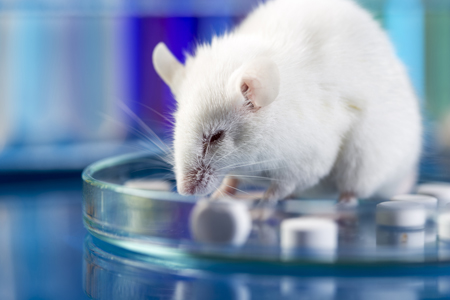The Combination of N-Acetylcysteine and Varenicline Reduces Nicotine Addiction in Rats
Nicotine addiction is highly cue-dependent, meaning that certain situations or places will make smokers crave a cigarette even if they’re trying to quit. Researchers working with rodents are exploring a combination of treatments that address different behavioral and neurobiological mechanisms to reduce nicotine addiction. In a recent study by Cassandra Gipson-Reichardt and colleagues, N-acetylcysteine reduced cue-induced nicotine seeking, while varenicline reduced nicotine self-administration. Together the drugs worked better to reduce nicotine relapse than either drug on its own.
In the study, rats were trained to self-administer nicotine (with 0.02mg/kg infusions), and cues were used to reinstate nicotine seeking. The rats were treated with 10 and 30 mg/kg injections of NAC and 1 and 3 mg/kg injections of varenicline.
Relapse is associated with rapid synaptic potentiation in the reward area of the brain, the nucleus accumbens. In addition to the positive behavioral changes noted, NAC also inhibited this synaptic potentiation, limiting rapid changes in the size of spines on dendrites and reducing the ratio of AMPA to NMDA (two different compounds that mimic glutamate) in the core of the nucleus accumbens.
Editor’s Note: The combination of NAC and varenicline has not yet been studied in humans, but because both compounds are effective in reducing smoking, it is likely that this animal research on nicotine will be replicated in humans who are addicted to the nicotine in cigarettes.
Smoking Multiplies Risks for Bipolar Patients
Smoking is associated with a less successful outcome in the naturalistic treatment of bipolar patients, reported Seetal Dodd and colleagues at the 4th Biennial Conference of the International Society for Bipolar Disorders in Sao Paulo, Brazil in March. Nicotine dependence has also been found to be a risk factor for depressive symptoms, as reported in a recent article in the British Journal of Psychiatry.
In addition to these direct effects on mental health, smoking is also a major risk factor for cardiovascular disease when combined with the presence of any three of the five primary risk factors that constitute the metabolic syndrome. (These five factors are: increased waist circumference, high blood pressure, increased cholesterol, increased triglycerides, and insulin resistance or elevated fasting blood glucose.) Cardiovascular disease co-occurs with bipolar disorder at a high rate and is one of the major causes of decreased life expectancy in those with inadequately treated illness.
Because smoking is a powerful risk factor for comorbid illnesses such as heart attack and stroke and is itself associated with a poor clinical outcome in the treatment of bipolar disorder, every effort should be made to help patients with smoking cessation. Suggestions after the jump. Read more



